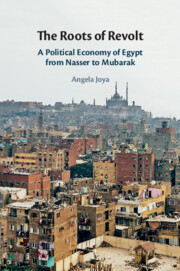This article examines changes in the allocation of urban land in Egypt between 1975–2011 with the rise and incorporation of state authoritarianism and neoliberal economics in what I call ‘authoritarian neoliberalism’. Authoritarian neoliberalism in Egypt transferred ownership of urban lands from public wealth to an affluent class of local and foreign capitalists – often in a non-transparent fashion. The article focuses on the government's legally sanctioned practices of subsidisations, privatisations and evictions as they relate to what I call, inspired by David Harvey's formulation, the accumulation of wealth by dispossession. Dispossession of public urban land, I maintain, generated widespread resentment that played a vital, but inadequately discussed, role in the series of revolts that culminated in the 2011 uprising in Egypt. Social tensions engendered in this authoritarian neoliberal regime, I argue, endure under the administration of President Abdel Fattah el-Sisi, who continues to transfer public urban lands, from lower to higher socioeconomic classes, at an even faster pace than his predecessor.
